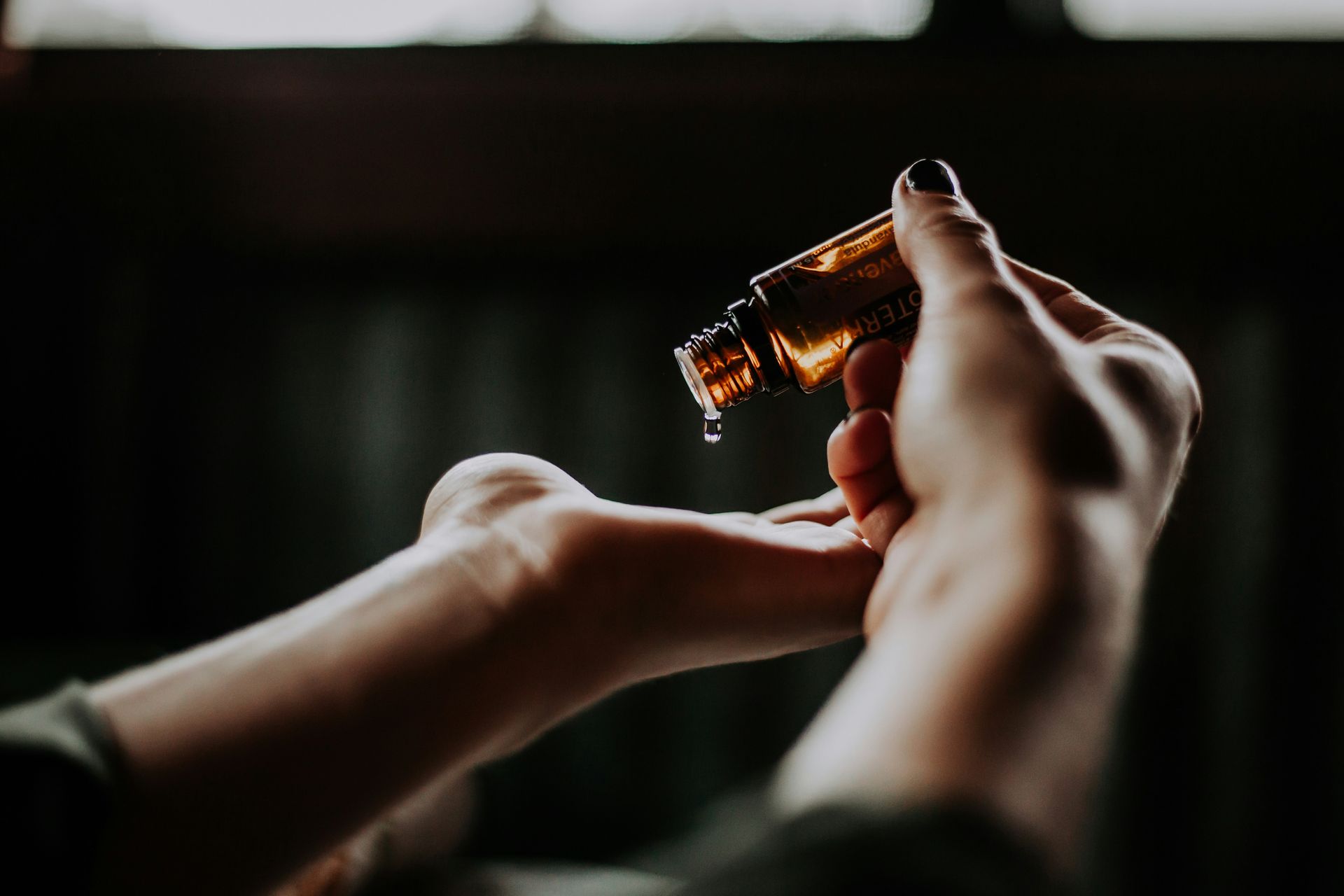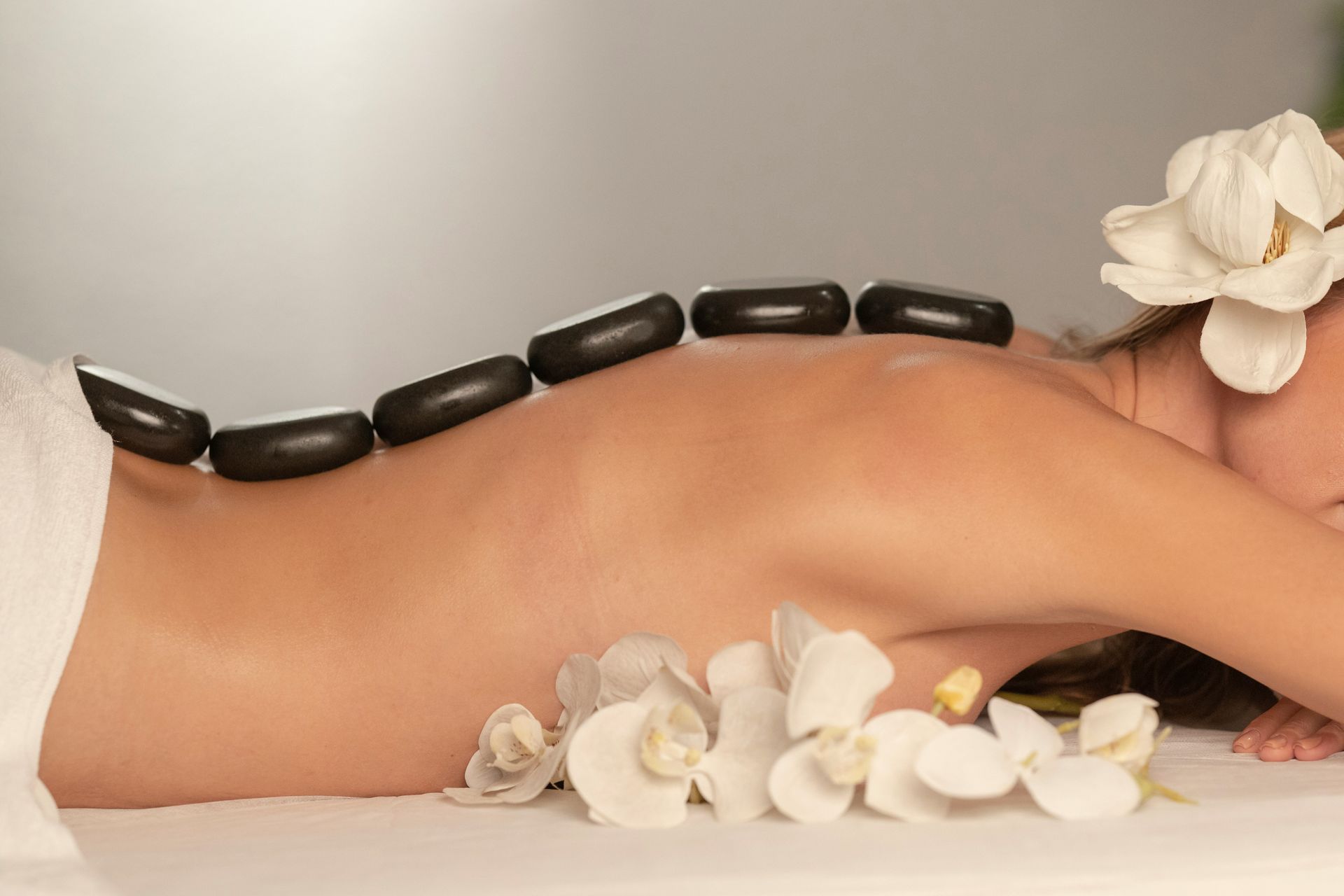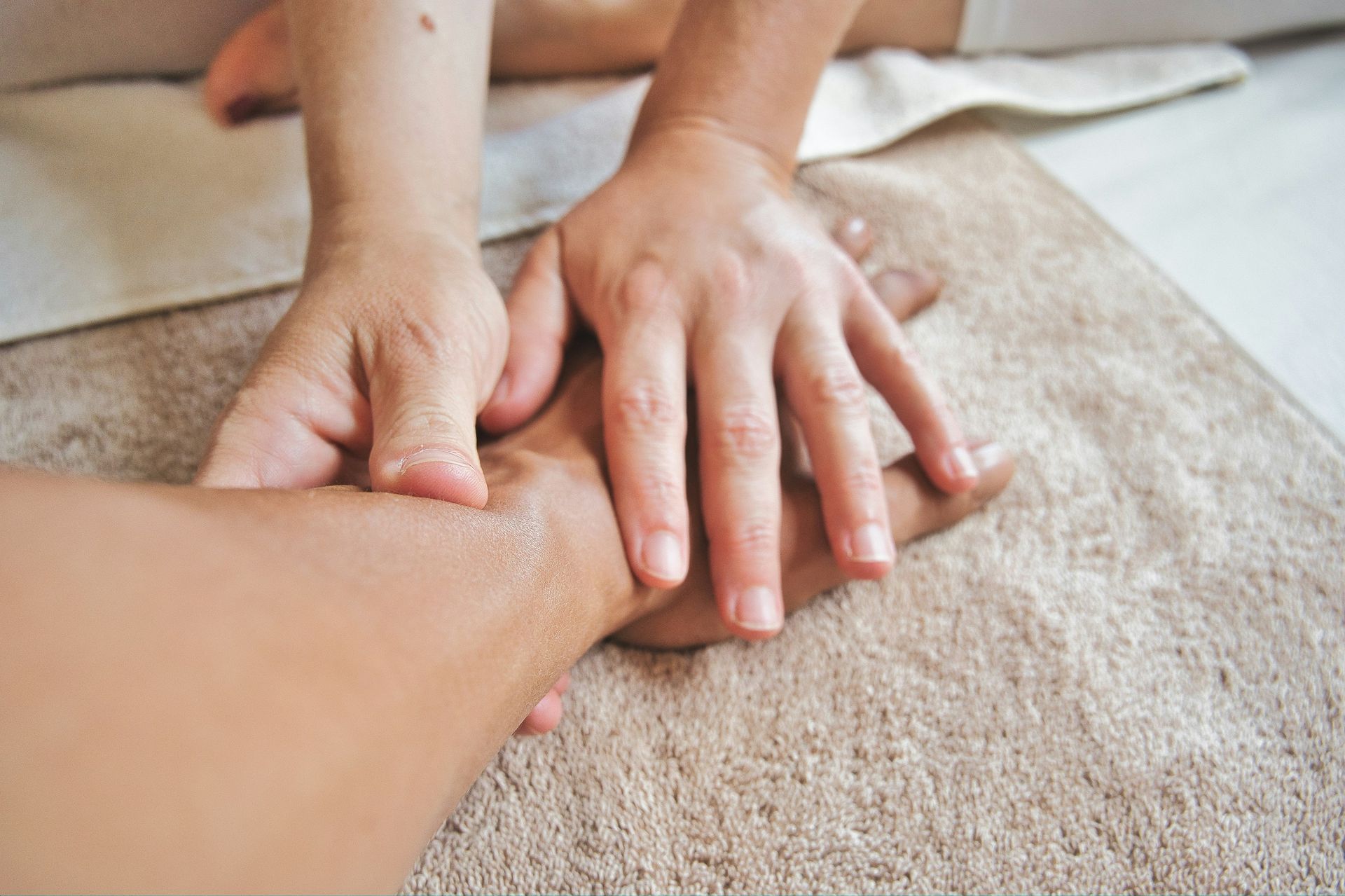Why Regular Massage Therapy Boosts Your Overall Well-Being
Regular massage therapy goes far beyond simple pampering. It helps muscles relax, improves circulation, and speeds up recovery after demanding days. It also reduces stress, promotes better sleep, and calms the mind by lowering cortisol levels and supporting mindful breathing. Over time, massage strengthens the immune system, helping the body resist illness and stay resilient. Many people explore various therapeutic massage services to find the right approach for their needs, discovering how personalized techniques enhance both physical and mental well-being. By keeping up with regular sessions at places like Shirley’s Mind & Body Spa in Sag Harbor, massage becomes a natural part of a healthier and happier routine, contributing to long-term wellness and balance in daily life.
Key Takeaways
- Regular massage therapy promotes muscle relaxation, reduces tension, and enhances circulation, supporting physical health and faster recovery.
- It lowers stress and anxiety by calming the mind and encouraging mindfulness through deep breathing techniques.
- Massage reduces cortisol levels, improving sleep quality by helping the body relax and fall asleep more easily.
- Post-massage hydration and lymphatic drainage flush out toxins, boost immune function, and enhance skin health.
- Consistent massage fosters a self-care routine that prioritizes wellness, stress management, and complements other health practices like yoga.
The Physical Benefits of Consistent Massage Therapy
Even without being an athlete or yoga enthusiast, consistent massage therapy delivers significant benefits. Regular sessions improve muscle recovery after exercise or long hours at a desk, easing tension and releasing tight spots. Massage also enhances blood flow, supplying tissues with nutrients that support healing and strength. As flexibility increases, everyday movements become smoother and less stiff, giving the body more freedom and comfort. Many clients choose targeted options like deep tissue massage to work through persistent tension and support long-term physical recovery. Being involved in a wellness-focused community can make massage therapy feel like an essential part of caring for your body and staying prepared for daily life.
How Massage Therapy Enhances Mental Health
Beyond physical benefits, massage therapy plays a powerful role in improving mental health. Regular sessions help calm the mind and ease symptoms of anxiety and depression. Through gentle techniques and mindful breathing, massage encourages the brain to slow down, creating space for mental clarity and emotional relief. Massage offers a safe environment to release stress and emotional tension. The soothing atmosphere, quiet setting, and therapeutic touch work together to lower mental strain and promote a sense of well-being. Many people report feeling lighter, clearer, and more balanced after their sessions, which helps them face daily challenges with greater resilience.
Stress Reduction Benefits
When daily pressures build, massage therapy helps release tension and promotes deep relaxation. Muscles soften, thoughts become clearer, and stress feels more manageable. Massage supports mindfulness techniques, helping people stay present and avoid becoming overwhelmed by worries. Over time, regular sessions act as a steady defense against stress, offering a mental reset that fits into any busy schedule. It creates a space where individuals can breathe, disconnect from constant demands, and reconnect with themselves. This relief often extends beyond the massage table, allowing people to carry a sense of calm into their everyday routines.
Anxiety and Depression Relief
For those dealing with anxiety or depression, massage therapy offers valuable support. The gentle touch helps quiet racing thoughts and promotes a sense of safety and emotional release. Massage triggers the release of feel-good hormones, such as serotonin and dopamine, which help lift mood and reduce feelings of sadness or fear. Regular sessions often lead to an improved mood and a calmer outlook. Many people discover that massage brings not only relief from physical discomfort but also a path toward stronger mental health. It can help reduce feelings of isolation, improve focus, and support more restful sleep, all of which contribute to better emotional balance.
The Role of Massage in Stress Reduction
When stress levels rise, the body produces higher amounts of cortisol, which can disturb mood, sleep, and overall well-being. Massage therapy helps reduce cortisol levels, offering the body a chance to relax and recover. This process enhances the body’s natural ability to unwind and return to balance, making it easier to handle daily pressures without becoming overwhelmed. Many clients turn to services like the signature massage experience, which blends relaxation with targeted pressure for balanced mental and physical relief. Regular massage provides a proactive way to manage stress before it affects physical or mental health. Many people find that after consistent sessions, they react to challenges with more patience and clarity.
Cortisol Level Regulation
Managing cortisol is crucial for maintaining mental and physical health. High cortisol levels over time can disrupt immune function, raise blood pressure, and interfere with sleep. Regular massage therapy lowers this stress hormone, helping individuals feel calmer and more balanced.
Massage reduces tension in the body, signals the nervous system to relax, and helps stabilize hormones. Embracing a routine that includes massage promotes long-term stress management and supports overall wellness. It empowers individuals to take charge of their health and prevents the harmful effects of chronic stress.
Enhancing Relaxation Response
The body has a natural “relaxation response” designed to counter stress. Massage therapy activates this response by encouraging mindful breathing and heightening sensory awareness. Focusing on breathwork during a session helps reduce heart rate and relax tense muscles, leaving the mind and body at ease. The soothing touch grounds individuals in the present moment, fostering a sense of peace and safety. This enhanced state of relaxation can improve focus, reduce irritability, and create an overall sense of well-being that lasts long after the massage session ends. It’s a powerful way to reset and restore balance.
Improving Sleep Quality Through Massage
For those struggling with restless nights, regular massage therapy can transform sleep patterns. Massage guides the body into a deeper state of relaxation, making it easier to fall asleep and stay asleep. Techniques used in massage lower heart rate, ease muscle tension, and reduce stress hormones, all essential for quality sleep. Better sleep improves focus, mood, and physical health, leading to greater energy during the day. Many people find they wake up feeling refreshed instead of drained. Including massage as part of a wellness routine can lead to more restful nights and help prevent the cycle of sleeplessness caused by stress and tension.
Boosting Immune Function With Regular Massage
Though often overlooked, regular massage therapy supports the immune system in important ways. It promotes lymphatic drainage, helping the body flush out toxins and maintain a strong defense against illness. Lowering stress hormones like cortisol also reduces strain on immune function, keeping the body better prepared to fight infections.
Consistent sessions can increase white blood cell count, enhancing the body’s ability to respond to viruses and bacteria. Improved circulation ensures immune cells travel efficiently to areas that need protection or healing. Massage acts like a natural support system, helping the body stay resilient and recover more quickly from illness. For more insight into this connection, many clients explore the benefits of deep tissue massage, which highlight how massage improves both immunity and physical recovery. Regular massage not only improves physical comfort but also contributes to the long-term health of the immune system. People who include massage in their wellness routine often report fewer illnesses and a stronger sense of vitality.
Massage Therapy and Pain Management
Pain can disrupt daily life, but massage therapy offers effective relief. Whether managing sore muscles or dealing with chronic pain, regular massage eases tension and promotes better circulation, helping the body heal and stay comfortable. It serves as a gentle tool for pain management, improving both physical function and emotional resilience.
Massage can reduce pain signals in the nervous system and release endorphins, the body’s natural pain relievers. Many people find relief from headaches, joint stiffness, and back pain after consistent sessions. Integrating massage into a pain management plan often decreases the need for medication and provides a natural alternative for maintaining comfort and mobility.
Here’s a quick look at how massage therapy tackles pain:
| Pain Type | Massage Benefits | Why It Works |
|---|---|---|
| Muscle soreness | Eases tight muscles | Boosts blood flow |
| Chronic pain | Reduces inflammation | Releases feel-good hormones |
| Joint stiffness | Improves flexibility | Loosens stiff joints |
| Stress-related | Lowers pain perception | Calms nervous system |
Incorporating Massage Into a Holistic Wellness Routine
Caring for the body and mind requires a thoughtful approach. Adding massage therapy to a wellness plan creates powerful benefits. Combining massage with gentle activities like yoga or walking helps keep muscles flexible and relaxed. Many people use massage sessions as a time for deep breathing meditation, further supporting mental health.
Drinking plenty of water after each session helps flush out toxins and keeps the body refreshed. Scheduling massages regularly turns self-care into a lasting habit rather than an occasional treat. By integrating massage into a broader wellness plan, individuals create a lifestyle that prioritizes health, balance, and self-awareness. It’s a simple yet effective way to support overall well-being and maintain a strong connection between mind and body.
Frequently Asked Questions
How Often Should I Schedule Massage Sessions for Optimal Results?
Scheduling massage sessions every one to two weeks works well for most people. Regular sessions maintain muscle relaxation, help manage stress, and support consistent healing and well-being. Finding a routine that fits your lifestyle helps keep self-care a steady priority.
Are There Any Risks or Side Effects of Regular Massage Therapy?
Most people tolerate massage therapy well, but some individuals may experience mild soreness, bruising, or sensitivity after a session. Those with certain health conditions or specific medical concerns should discuss their situation with a qualified therapist to ensure the approach is safe and tailored to their needs.
Can Massage Therapy Help With Specific Medical Conditions?
Many people living with chronic pain or other health challenges benefit from massage therapy. Therapeutic techniques can ease symptoms, reduce discomfort, and support overall healing. For conditions like arthritis, fibromyalgia, or sports injuries, massage often complements other treatments and improves quality of life.
What Types of Massage Are Best for Beginners?
Swedish massage is often recommended for beginners because it uses gentle, soothing techniques that promote relaxation without deep pressure. Those looking for more focused work might try deep tissue massage, which targets deeper muscle layers while still being approachable for newcomers.
How Do I Find a Qualified Massage Therapist?
A good way to find a qualified massage therapist is by checking reputable online directories, reading reviews, and confirming professional credentials or licenses. It’s helpful to look for therapists who specialize in the type of massage or health concern you’re seeking help with, ensuring a safe and effective experience.
Final Thoughts
Regular massage therapy offers both physical and mental benefits. It helps muscles relax, reduces stress, improves sleep, boosts the immune system, and supports pain management. Making massage part of a routine can transform wellness and bring lasting improvements to health and well-being. If you're considering adding massage to your lifestyle, you can explore available
session rates and service options to find what fits your needs. Investing in self-care through massage helps create a balanced, healthier life and encourages a proactive approach to feeling good every day. To begin your wellness journey,
get in touch with the team and take the first step toward long-term well-being.











